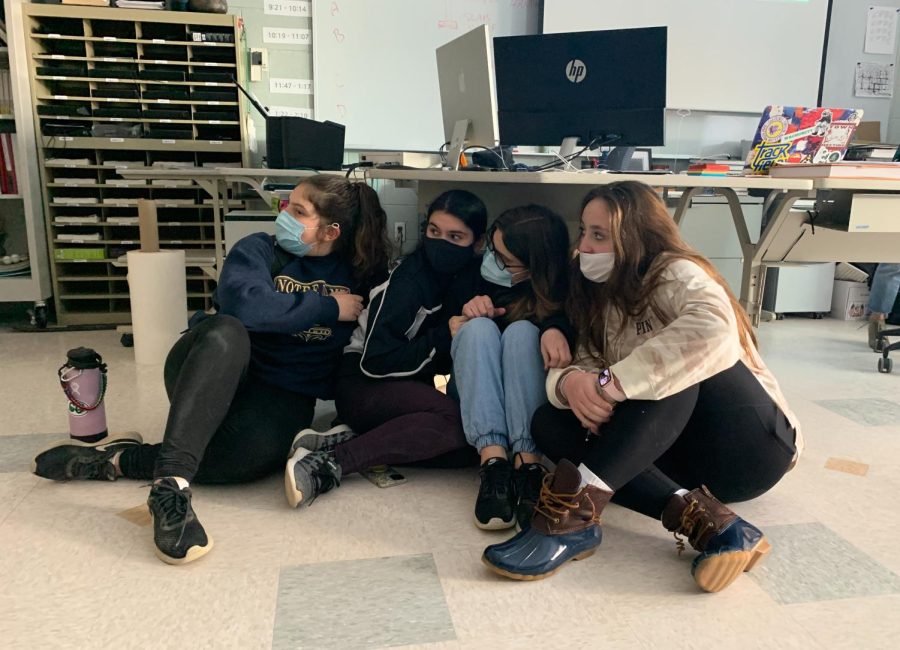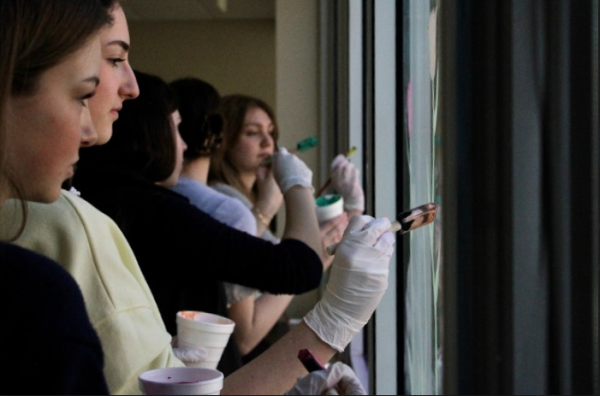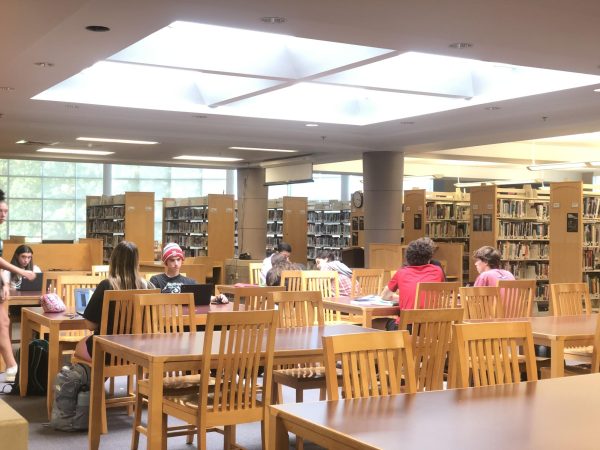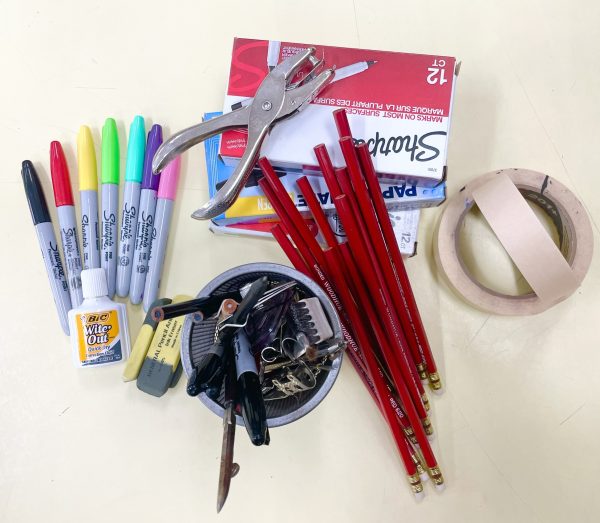New training hopes to bring improved security to the Regional
School should be a place where students can be safe. Unfortunately, over the past few years there have been attempts to harm faculty and students in schools across the country.
Most often, when a threat (often an active shooter) had been detected, students would hide in classrooms with covered windows and locked doors. They would not leave until authorities told them to do so.
“With the traditional lockdown, you’re kind of like sitting ducks. If an intruder is on the other side of the school, students shouldn’t have to hide,” said junior Meredith Fontaine.
But, about a decade and a half ago, a more proactive approach emerged.
ALICE, an acronym for Alert, Lockdown, Inform, Counter, and Evacuate, encourages a more active approach to a threatening situation and has been implemented in approximately 5,500 school districts across America.
“The Columbine students were trained for a traditional lockdown, but there was an exit students could have accessed in the library. This incident changed the way people looked at school lockdowns and how to handle crisis situations,” said assistant principal Michael Pratt.
Wachusett began the transition to the ALICE protocol about five years ago.
“The decision at the building level was made by [principal] Mr. [Bill] Beando and the superintendent, but schools across the country had been moving to ALICE,” said Pratt.
On Monday, January 24th during E block, Mountaineers underwent a more traditional lockdown drill.
“It [the lockdown drill] was a good opportunity for teachers and students to review our new ALICE policy. The students knew it was coming and didn’t take it very seriously, but it was still a good chance to review our policies. My class talked about what they should do in case of an emergency,” said English teacher Sean Farrell. “My students were very vocal about how stupid they thought it would be to sit in a dark room waiting for something to happen. They sort of instinctively knew that a more proactive approach was necessary, and I agree with them,”
According to administrators, despite some setbacks students will soon be ready to implement the ALICE protocols.
“I think obviously we need to continue with more practice and, obviously, with the coronavirus, we haven’t done a lot. But I think we would be prepared,” said Pratt. “I’ve worked with all the staff members here to train them, so they all know what they’re doing.”
Students said there may be a learning curve with fully implementing the ALICE protocol.
“I think ALICE is a good practice, “said junior Karisa Juneau. “But I think people would be more frantic in a real emergency scenario.”

Aaron is a senior at Wachusett and has been a member of the Echo for the last two years. He enjoys writing and learning languages, including French, Spanish,...













